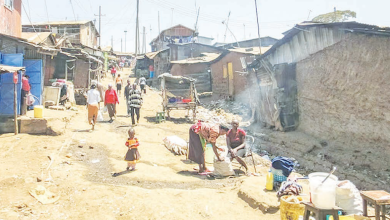Stop fighting, start helping the girl child

STAKEHOLDERS advocating for the rights of the girl child in Tanzania have been urged to speak with one voice and intensify joint efforts to end the stigma facing schoolgirls who return to school after pregnancy.
The passionate call was made earlier this week during a consultative meeting involving civil society organisations (CSOs) and journalists in Dar es Salaam.
The event provided a critical platform for forging strategies aimed at legal and policy reform under the theme: “Advancing Legal and Policy Reforms to End Child Marriage, Promote Re-entry to Education, and Strengthen Protection against Sexual Violence for Girls in Tanzania.” Executive Director of the Tanzania Women Lawyers Association (TAWLA), Ms Tike Mwambipile, said it was deeply concerning that the country’s laws remain contradictory when it comes to protecting the girl child.
She pointed to Sections 13 and 17 of the Law of Marriage Act, which allow girls to marry at the ages of 14 with court consent and 15 with parental approval, despite other laws that define a minor as anyone under 18 and criminalise sexual activity with them.
“This issue continues to trouble us. Why is the amendment of this law being delayed, despite its broader implications for the welfare of the girl child and society at large?” said Ms Mwambipile, referring to the landmark 2016 High Court case filed by child rights activist Rebeca Gyumi, which declared those provisions unconstitutional.
Yet, almost a decade later, the ruling remains unenforced. Ms Mwambipile acknowledged commendable progress by President Samia Suluhu Hassan, particularly in allowing girls who became pregnant to return to school.
ALSO READ: Mbeki visits SA freedom fighters’ camp in Tanzania
However, she stressed that this directive must be backed by law to ensure its sustainability across administrations.
“While there are guidelines supporting re-entry, implementation remains inconsistent. Many schools, educators, and communities still label returning girls with harsh names, denying them a true second chance,” she said.
Ms Mwambipile added, “we urge the Ministry of Education to formalise this right into law. No girl should be denied an education because of outdated beliefs.” The Director of the Africa Office at Equality Now, Ms Faiza Jama Mohamed, added her voice to the urgency for reform, citing alarming statistics from the 2023 Girls Not Brides report.
She said 29 per cent of Tanzanian girls are married before 18, with some regions like Shinyanga and Mara reporting rates over 50 per cent.
“These early marriages driven by poverty, harmful traditions, and gender inequality push girls out of school and into cycles of abuse, lost potential, and generational poverty,” said Ms Mohamed.
She called for stronger enforcement of re-entry guidelines, warning that the current lack of clarity leaves many adolescent mothers excluded from education. She further raised concerns about school-related genderbased violence (SRGBV), pointing to research in Temeke Municipality, which revealed rampant sexual harassment and corporal punishment in schools.
According to the 2022 Tanzania Demographic and Health Survey, 27 per cent of girls aged 15 to 19 experience teenage pregnancy, with rural areas hit hardest. Many of these pregnancies are linked to sexual exploitation near or within school environments.
“These are not just numbers, they are stories of real lives like those of Matilda and Anita, whose hopes were crushed by early marriage and abuse.” She reaffirmed Equality Now’s commitment to working alongside local partners to press for overdue legal reforms, support adolescent mothers, and combat school-based violence.
ALSO READ: TZ to experience slightly warmer nights
National Coordinator of the Tanzania Ending Child Marriage Network (TECMN), Ms Lilian Kimathi, underlined the key role played by CSOs and the media in advocating for the rights of girls. She called on journalists to use their platforms wisely and collaborate with activists to pressure decision-makers into action.
“We must work together to ensure that girls go back to school. I cannot do it alone, but united, we can achieve so much more.” Ms Kimathi said.
Ms Kimathi described the gathering as a powerful alliance where civil society organisations bring ground-level experiences, data, and advocacy expertise, while journalists shape public discourse with the power to influence minds, policies, and hearts.
Participants at the meeting unanimously agreed on the need to prepare a robust communique to be presented to top levels of government, including the Office of the President, demanding swift amendments to discriminatory laws and the establishment of a national legal framework that guarantees girls’ right to education.





